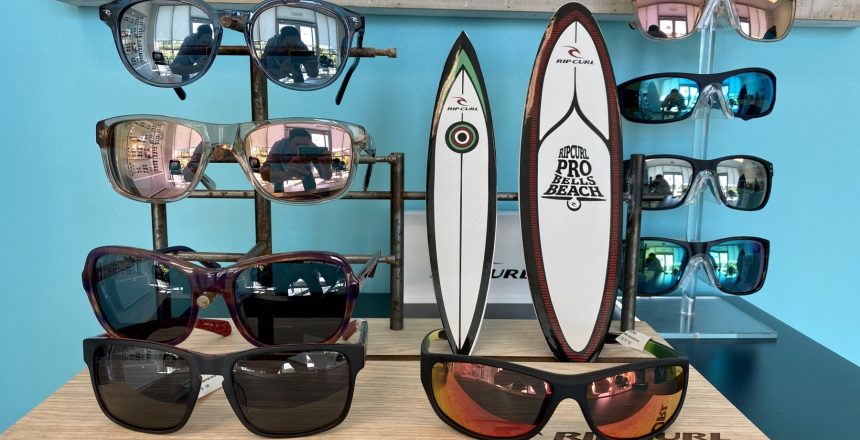Family Eye Care in Port Orange
Protecting your eyes may prevent cataracts or slow their progression.
A number of risk factors are known to contribute to the development of cataracts. But that doesn’t mean cataracts can necessarily be prevented. In fact, some of the largest risk factors for cataracts, like age, are out of your control. Wearing sunglasses that protect your eyes from ultraviolet (UV) rays may help prevent or slow the development of cataracts. Ultraviolet B rays are especially harmful to your eyes, so it’s important to look for glasses that provide this protection specifically. It’s a good idea to wear protective sunglasses any time you’re outside during daylight, not only when the sun is especially bright or shining at an angle that disturbs your vision. If you’d rather not wear sunglasses outside or are looking for protection when you’re indoors, you can also wear regular clear glasses with a UV-blocking coating. For family eye care in Port Orange you can talk to the doctors at the Precision Eye Institute about your options and the benefits of each type of protective glasses.

See an Eye Doctor Regularly to Know Your Cataract Status
While visiting your eye doctor won’t directly prevent cataracts, it can help you stay aware of your cataract status and learn about measures that could help prevent or manage the condition. And once you’ve started to develop cataracts, it’s important to track your condition through regular appointments. Talk to your doctor about how often you should be stopping by for an office visit. Generally, adults over age 60 should have a comprehensive eye exam at least every two years, according to the National Eye Institute. Doing this can also help screen for conditions like macular degeneration and glaucoma, which can require treatment that may be complicated by having cataracts.
A number of risk factors are known to contribute to the development of cataracts. But that doesn’t mean cataracts can necessarily be prevented. In fact, some of the largest risk factors for cataracts, like age, are out of your control. Wearing sunglasses that protect your eyes from ultraviolet (UV) rays may help prevent or slow the development of cataracts. Ultraviolet B rays are especially harmful to your eyes, so it’s important to look for glasses that provide this protection specifically. It’s a good idea to wear protective sunglasses any time you’re outside during daylight, not only when the sun is especially bright or shining at an angle that disturbs your vision. If you’d rather not wear sunglasses outside or are looking for protection when you’re indoors, you can also wear regular clear glasses with a UV-blocking coating. For family eye care in Port Orange you can talk to the doctors at the Precision Eye Institute about your options and the benefits of each type of protective glasses.

See an Eye Doctor Regularly to Know Your Cataract Status
While visiting your eye doctor won’t directly prevent cataracts, it can help you stay aware of your cataract status and learn about measures that could help prevent or manage the condition. And once you’ve started to develop cataracts, it’s important to track your condition through regular appointments. Talk to your doctor about how often you should be stopping by for an office visit. Generally, adults over age 60 should have a comprehensive eye exam at least every two years, according to the National Eye Institute. Doing this can also help screen for conditions like macular degeneration and glaucoma, which can require treatment that may be complicated by having cataracts.

